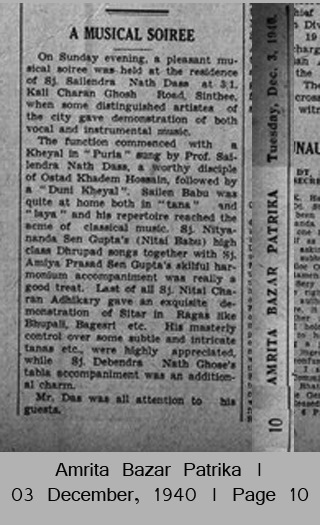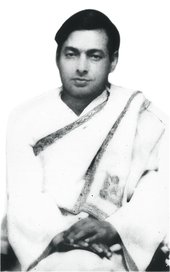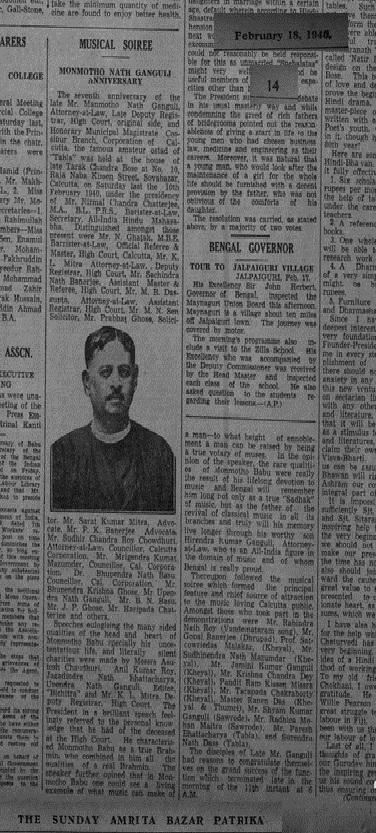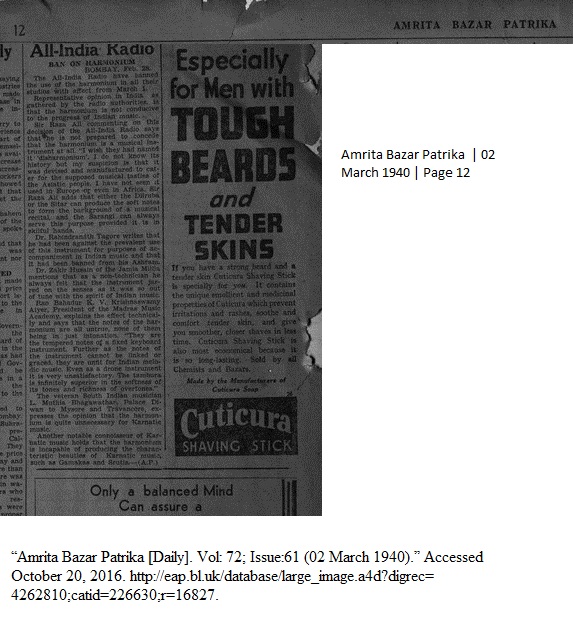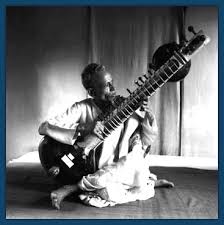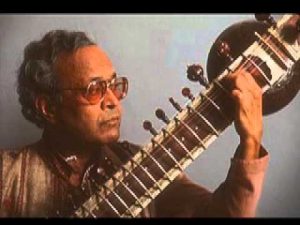 The Sunday | Amrita Bazar Patrika | December 29, 1940
The Sunday | Amrita Bazar Patrika | December 29, 1940
All Bengal Music Conference
SITS TO-DAY
A Galaxy Famous Artists To Participate
Ustad Mustaqu Hossain Khan of Rampur state and Ustad Bhailal Muhammad Rababi of Amritsar, two of India’s foremost classical vocal musicians will demonstrate To-day at All Bengal Music Conference which opens session this morning at 9.30 A.M. at The First Empire Theatre board. In the unavoidable absence of President of the committee, Maharaja Jogindranath Roy of Natore, owing to illness, Sir Manmotho Nath Mukherjee will preside, while Kumar Prasad Garga of Mahissadal will deliver address as Chairman of the Reception Committee. The Conference will continue for four days.
The Hony General Secretary Sj. Bhupendra Krishna Ghose will also be absent as he is physically bedridden being down with serious illness. His report will be presented by Sj. Sital Chandra Bose, one of the departmental secretaries.
Mr Radhika Mohan Moitra, the well known sworodiya and a disciple of Late Ustad Amir Khan will act as director of programme.
The conference will held two sittings daily – Morning at 9.30 A.M. and Evening at 5.30 P.M.
Among other famous artists who will demonstrate at the eight sittings of the conference will be Ustad Ghulam Ali Khan of Lahore (Kheyal), Srimati Hirabai Barodekar of Bombay (Kheyal and Thumri), Pandit Onkarnath Thakur of Bombay, Srimati Menaka bai Shirodkar of Bombay (Dance and Kheyal), Master Madan of Keonthol state (Kheyal), Bilatu’s Sanai Party oh Benaras, Ustad Ziauddin Khan of Udaipur state and Prof. Mainuddin Khan son of Late Ustad Nasiruddin Khan of Indore (Dhrupad), Pt.Ramesh Ch. Thakur of Bombay (Tabla Tarang ), Prof. Ali AKBAR Khan son of Prof. Alauddin Khan (Swarode), Prof. Anokhelal of Benaras (Tabla Lahra), Prof. Asfaque Hussain Khan of Surgana state (Kheyal), Prof. Sundaram Iyer of Madras University (Violin), Prof. Ramanuj Iyengar of Madras (Veen), Pt.Maganlal of Panchgachiya Raj (Kheyal), Srimati Saraswati Bai of Bombay (Kheyal), Prof. Nagesh Rao of Bombay (Kheyal), Prof. Ameer Khan of Indore (Kheyal) etc…etc.
TO-DAY’S PROGRAMME
First Sitting – Morning – 9 a.m : 1. Mangalachran – Pandit Srinath Samadhyayee 2. Opening Song – “Bandemataram” by Bijan Bala Ghosh Dastidar: 3. Welcome Address by The Chairman of the Reception Committee; 4. Speeches; 5. Presidential Address; 6. Formal Opening of the Conference.
Demonstration – Veen – Khalifa Md Dabir Khan; Dhrupad – Gopal Chandra Banerjee; Kheyal – Girija Shankar Chakrabarty; Rudra Veen – Pramatha Nath Banerjee; Kheyal – Ustad Mustaque Hussain Khan (Rampur State); Sanai – Mian Bilatu’s Sanai Party ( Benares).
Second Sitting – Evening -5.30 P.M. – Demonstrations by Competitors.
Demonstrations by Musicians – Dhrupad Gopeswar Banerjee; Setar – Prof. Ziauddin Khan (Udaypur State); Dhrupad – Ramchanda Bhatt( Benares); Kheyal – Jatadhari Jha (Darbhangha); Tappa – Kalipada Pathak; Dukkar – Prof. Nasir Khan (Punjab); Kheyal – Ostad Bhailal Muhammad Rababi (Amritsar); Setar – Sj. Bimala Kanto Roychowdhury; Dance – Sm. Menka Bai Shirodkar (Bombay); Sursringar – Birendra K. Roychaudhury; Dhrupad – K.C.Dey; Kheyal – Jnan Goswami; Tabla Lahra – Keramat Khan; Kheyal – Pt . Maghanlal of Panchgachia Raj; – Kheyal and Thumri – Saraswati Bai.
PRIZE DISTRIBUTION TO COMPETITORS
The prize distribution ceremony of the music conference was held on Thursday evening (Dec 25) at the University Institute Hall. The old veteran musician Sj. Gopal Chandra Banerjee presided and Kumar Deba Prasad Garga gave away the prizes in the shape of medals, certificates, running cups and trophies to 130 female and 89 male successful competitors, the total number being 219 out of 638 competitors. The competitors and those present were treated to refreshments.
After a vote of thanks moved by Mr. D. D. Khanna, Treasurer of the conference, the function came to a close.
Identified by Rajeswary Ganguly Banerjee, Research Fellow
Data processed at SAP-DRS Lab, Department of Instrumental Music, Rabindra Bharati University.


